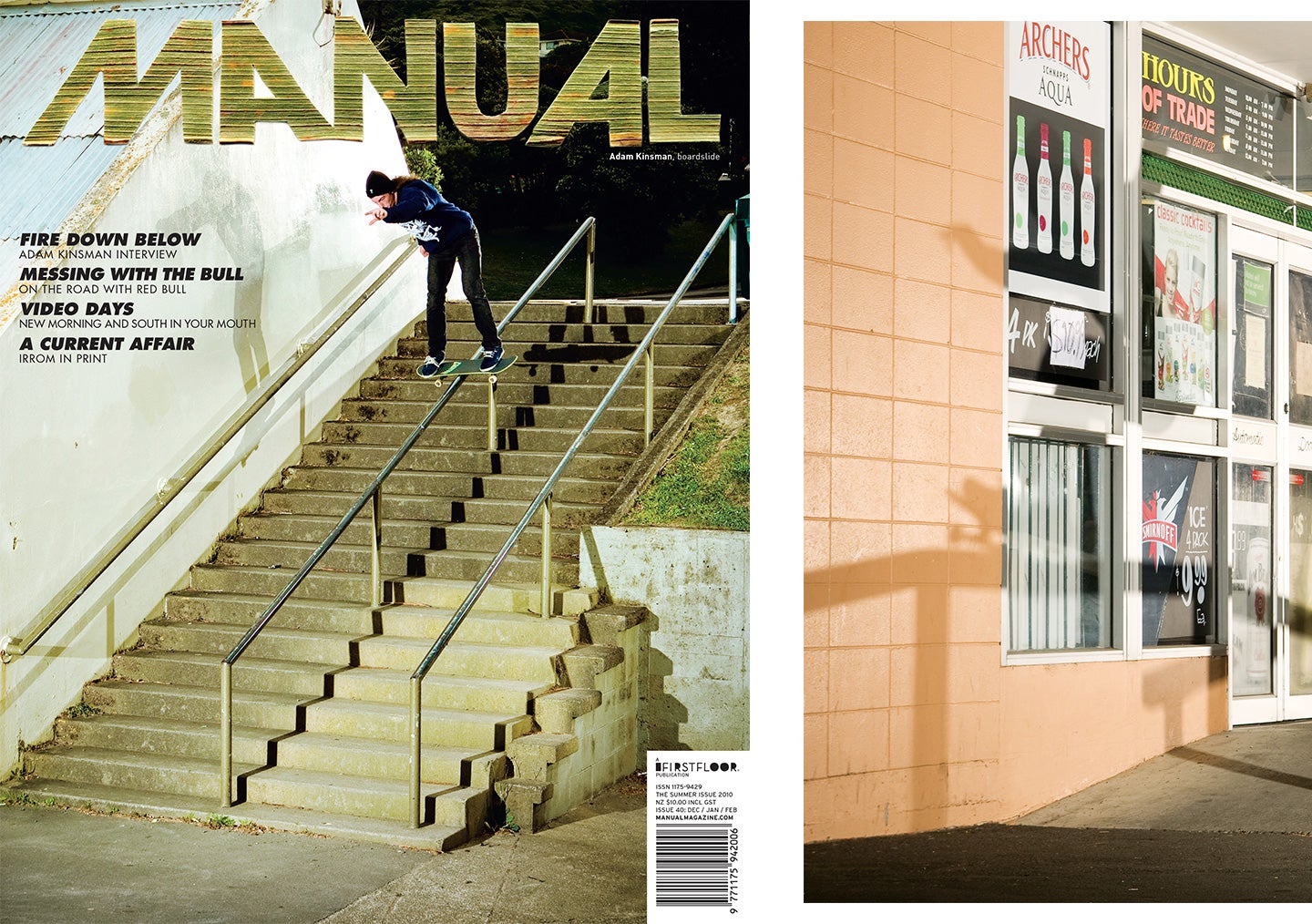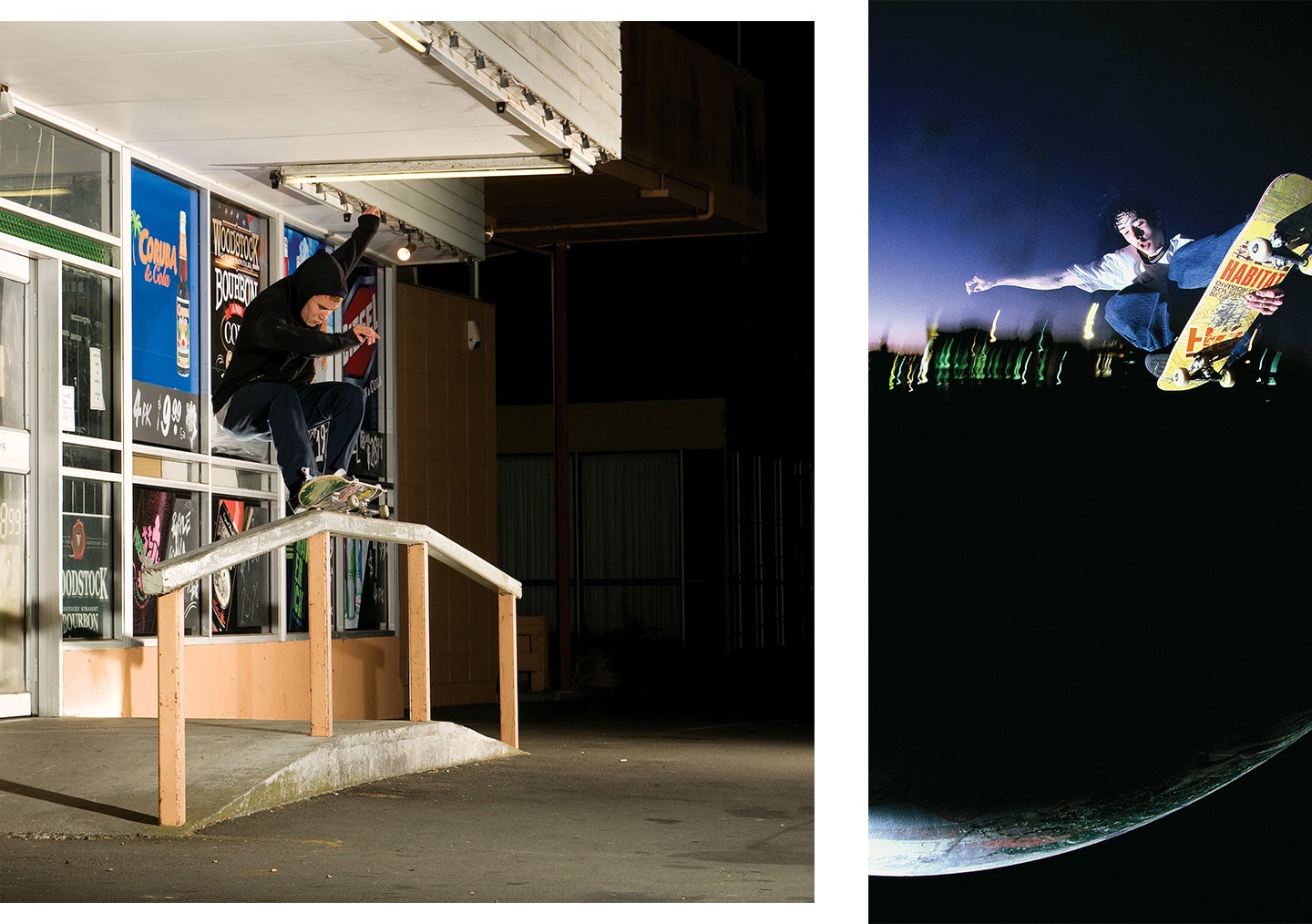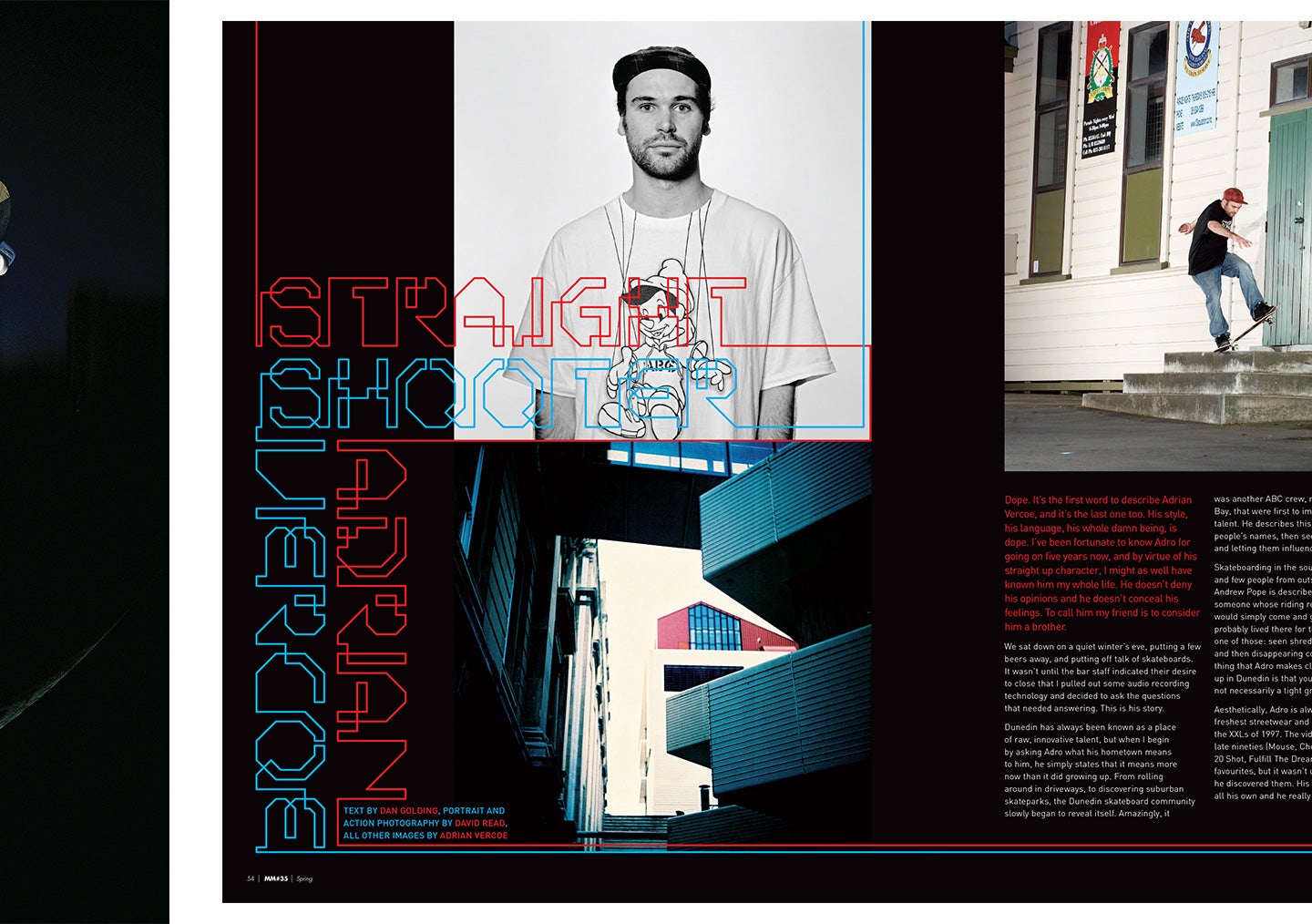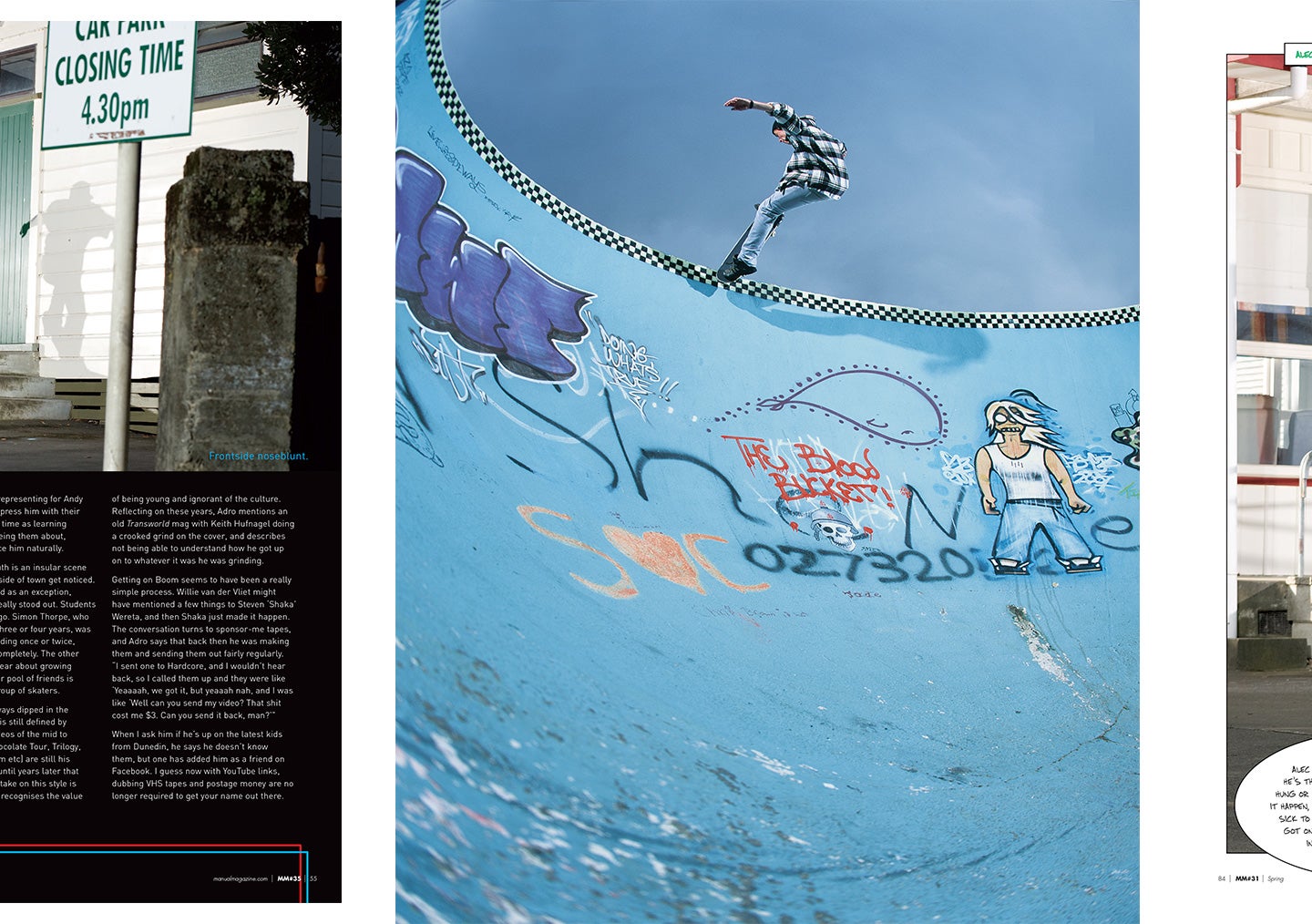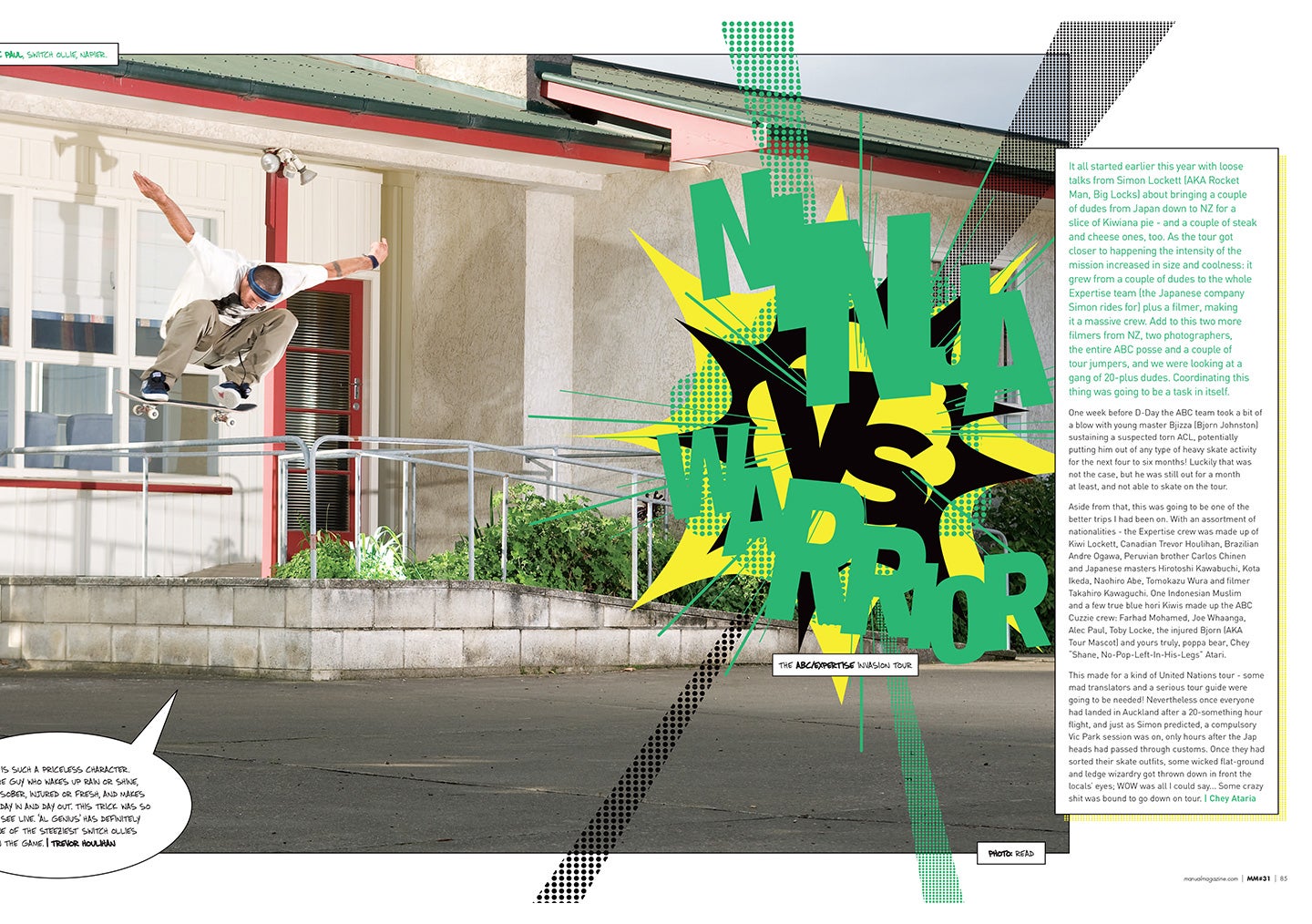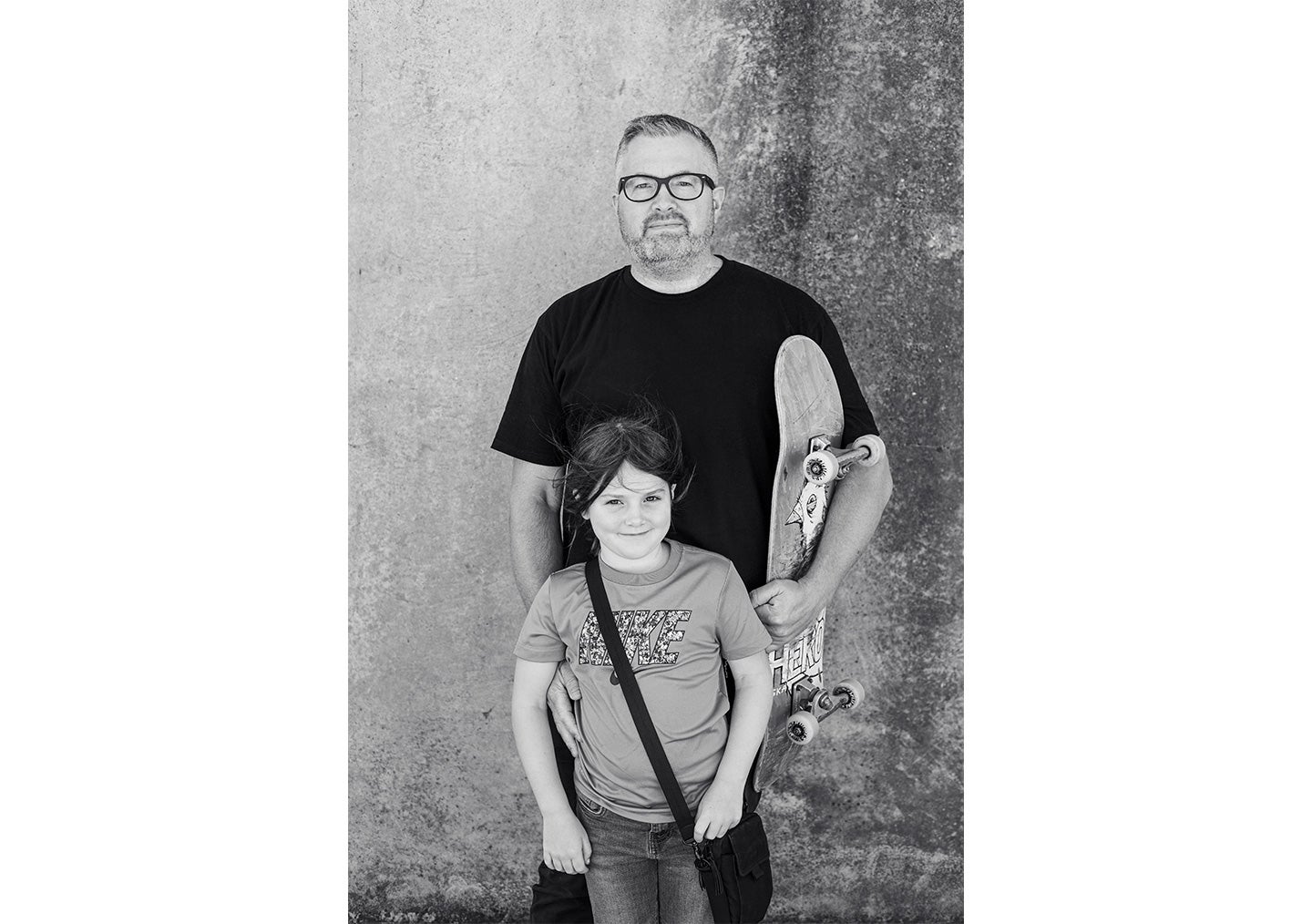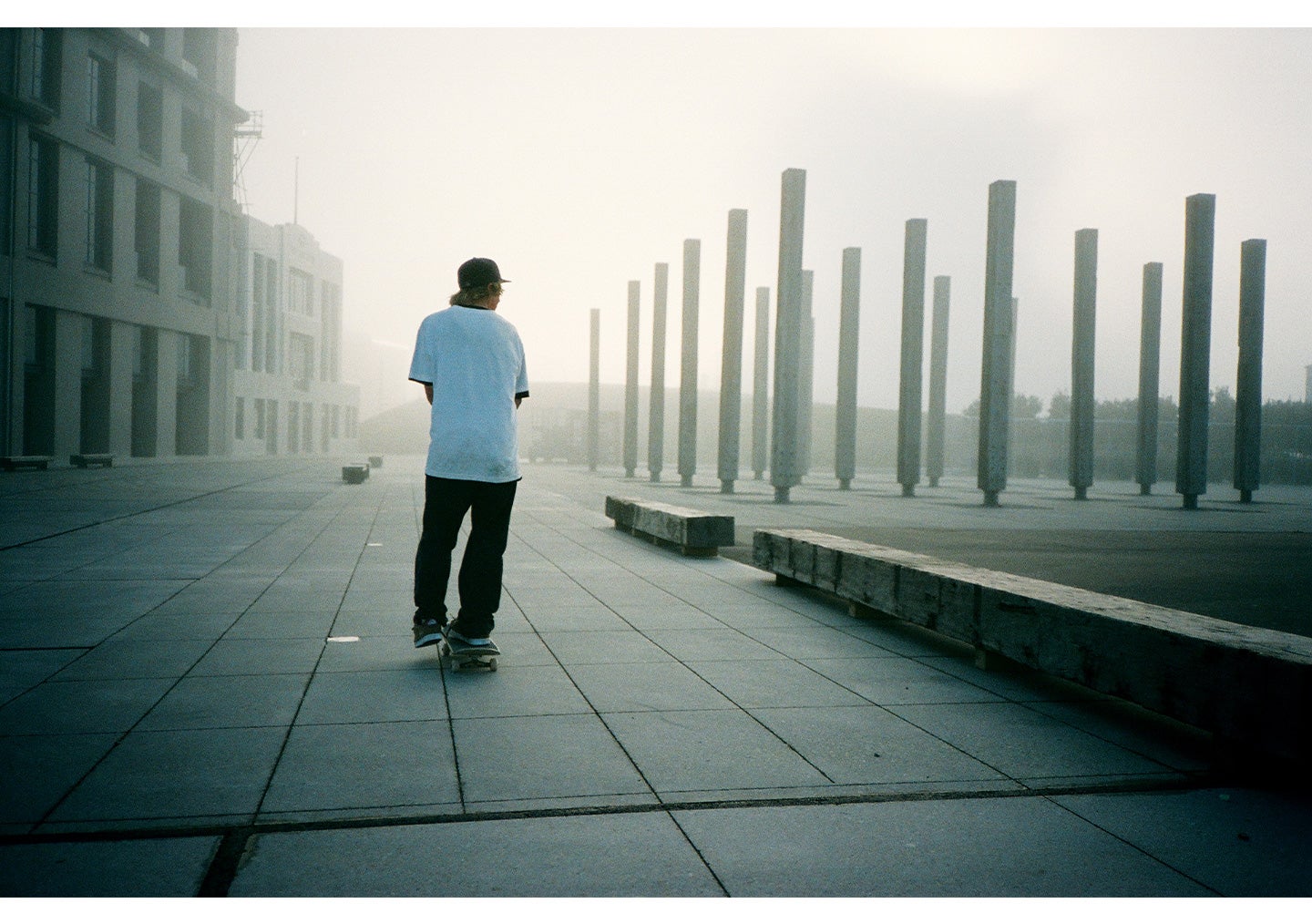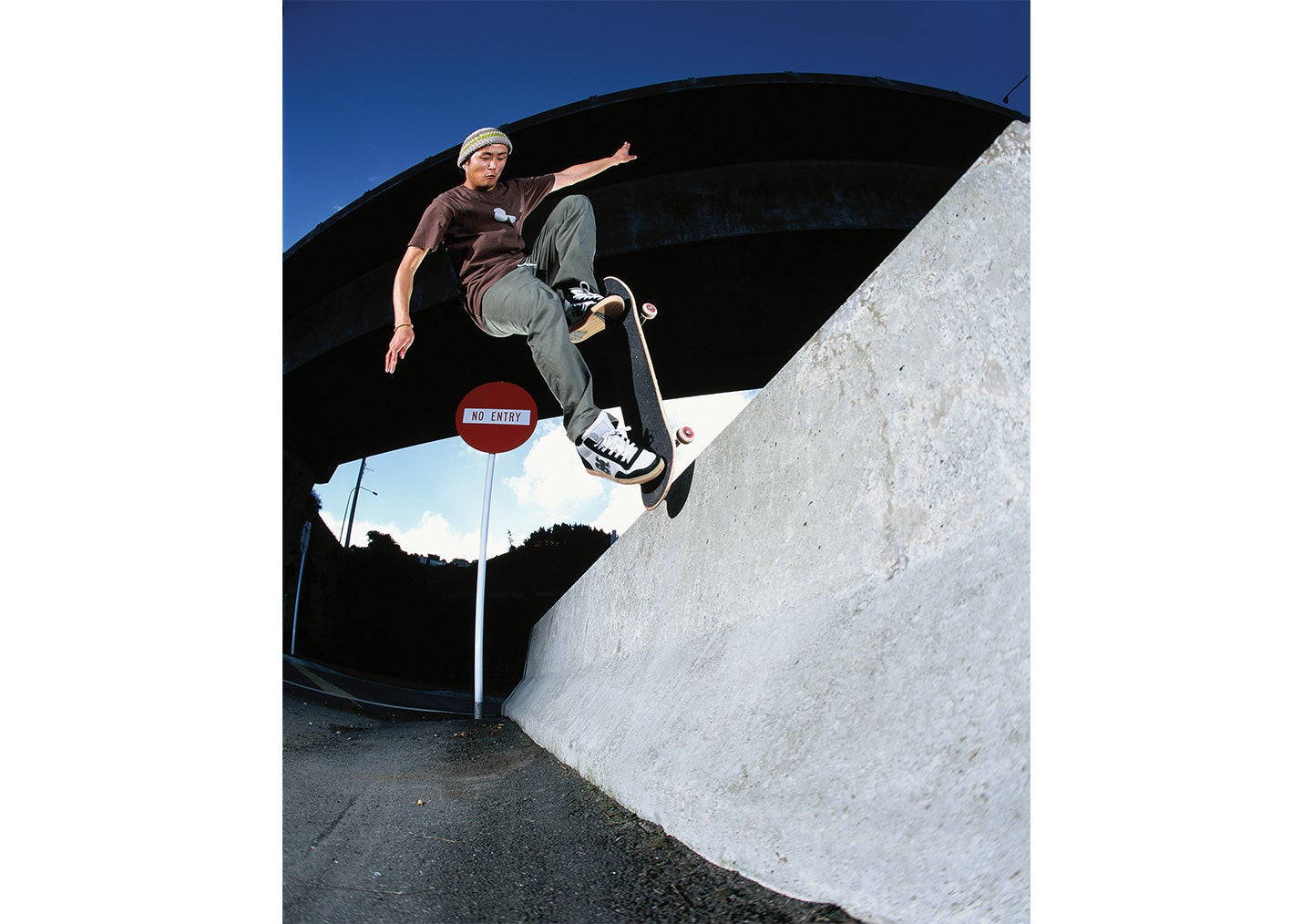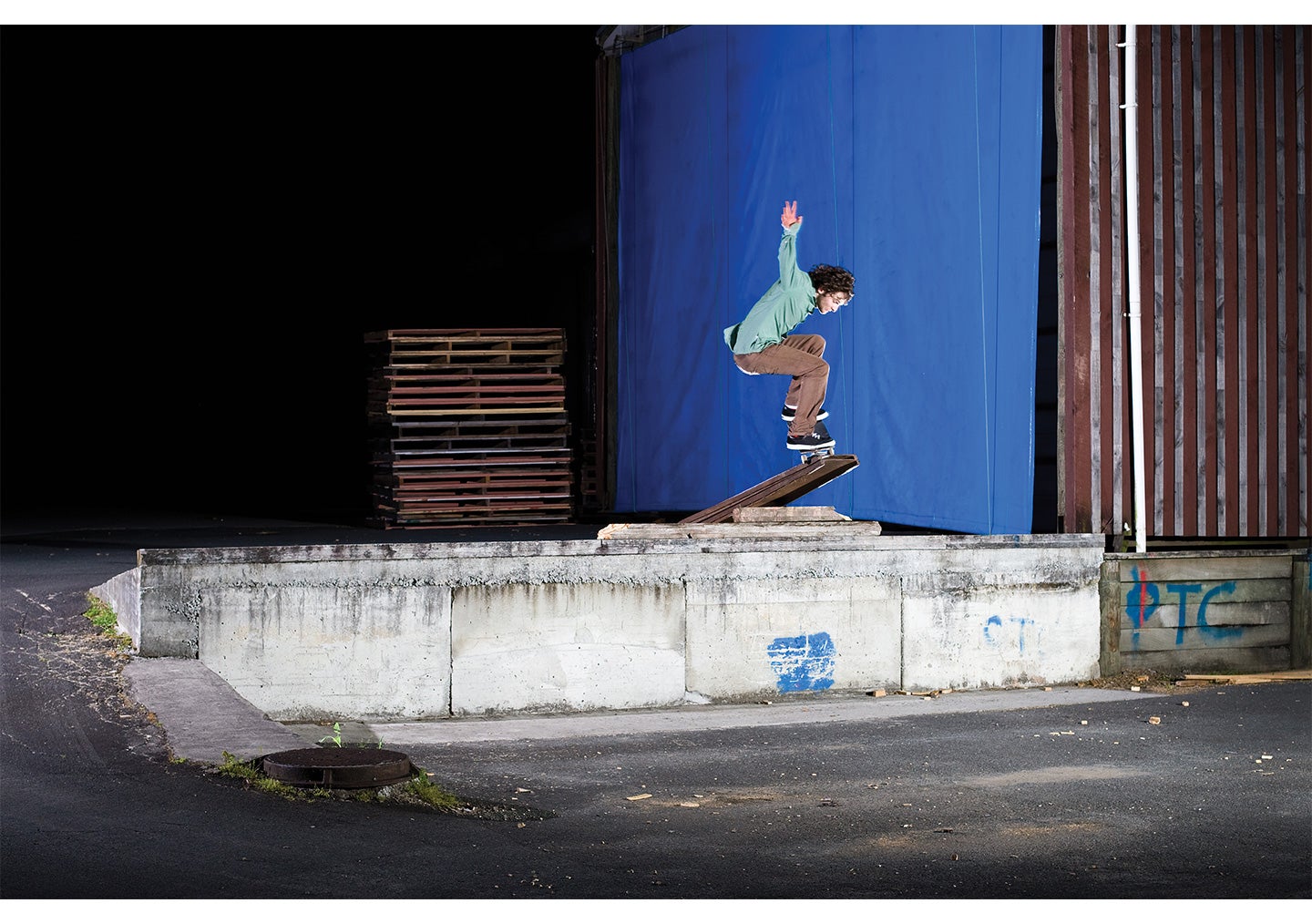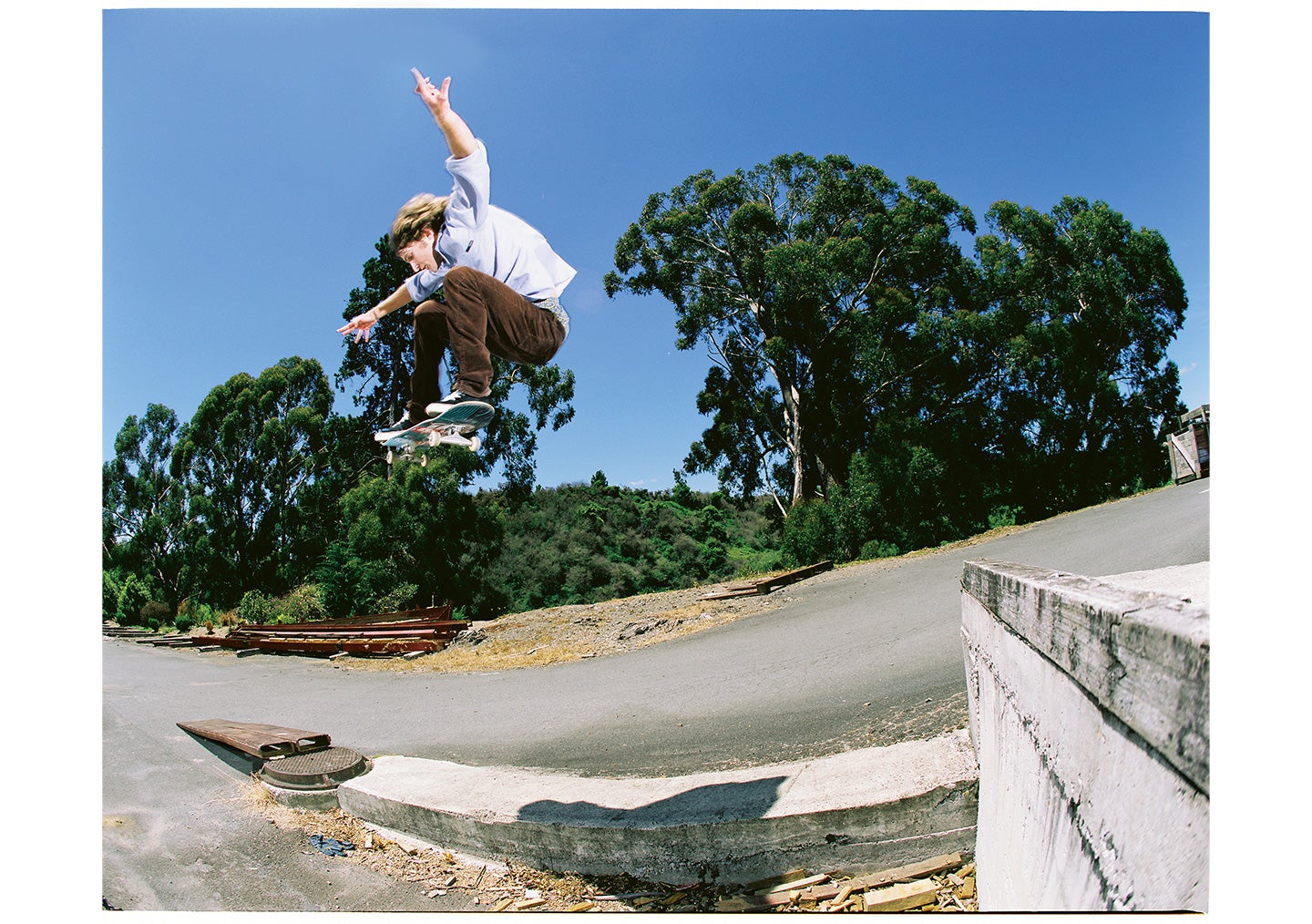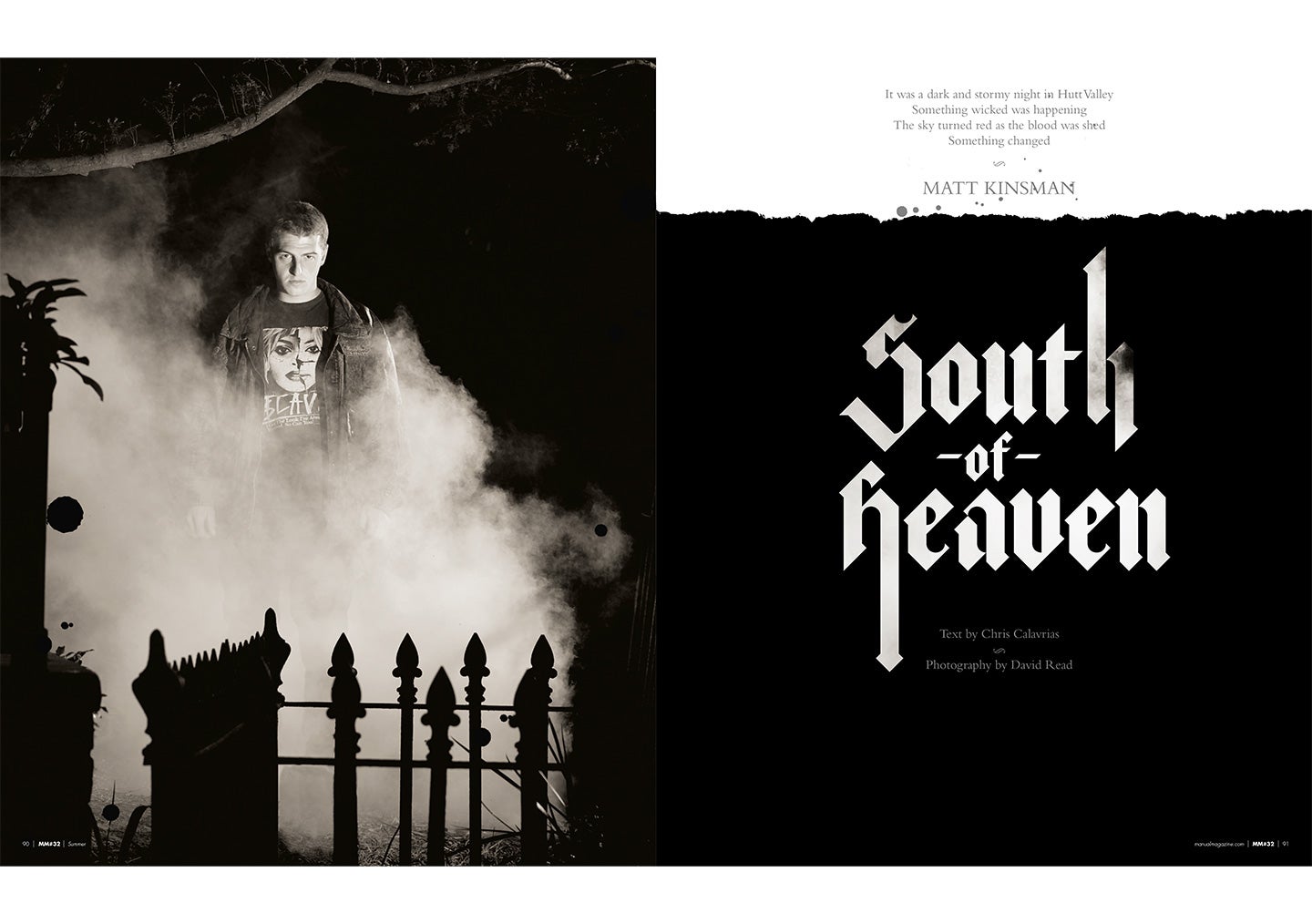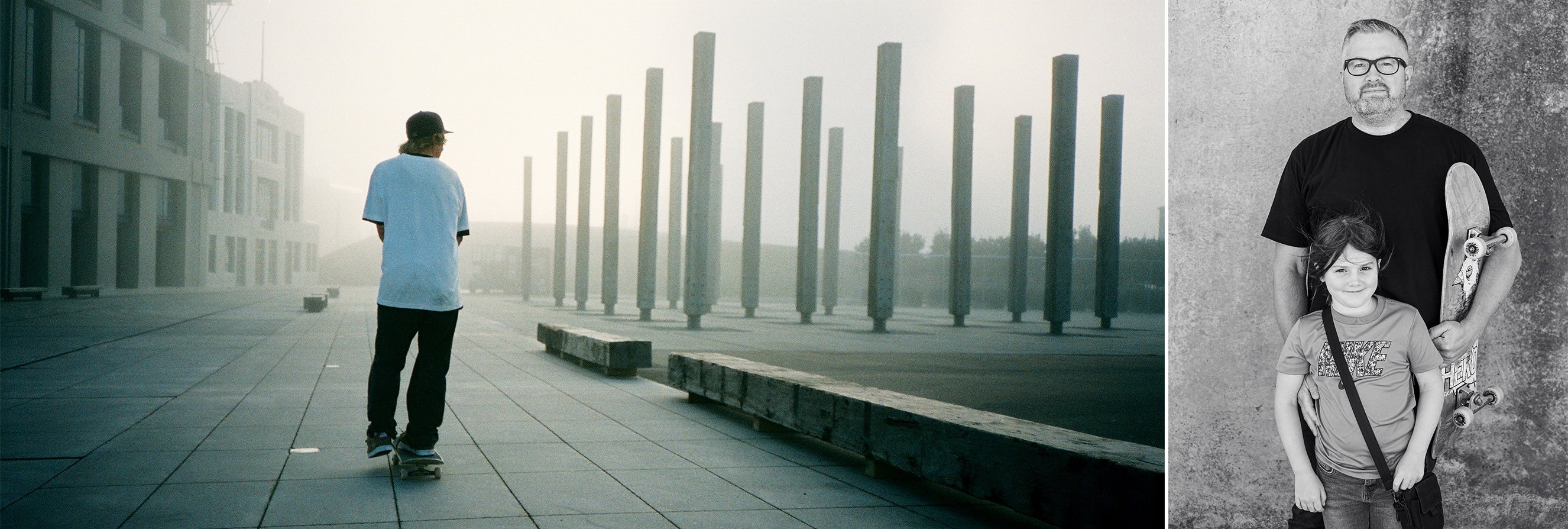
Connected // David Read
18 Jun, 2023
|
Boardertown
If you grew up skateboarding in New Zealand over the last 20 years, it's hard not to have seen the influence that Manual Magazine has had on the local skate scene. From the first issue in 1997, Manual has been a constant, providing a medium for skateboarders, photographers, artists and creatives, showcasing New Zealand skateboarding and bringing the skateboard community together.
As the driving force behind Manual, David Read has translated his love of skateboarding and photography into a career, documenting two decades of New Zealand skateboarding in 70 issues of Manual Magazine (to date). We can't understate the monumental impact that David Read has on New Zealand skateboarding. Few people have had a longer, or made a more lasting impression on skateboarding in Aotearoa than David.
We caught up with David to ask him a few questions on skateboarding, Manual Magazine and the changing landscape of media.
How did you get into skateboarding?
It was 1985 and my first year at intermediate. The movie Back to the Future had just come out with Michael J Fox skateboarding in it. My friends and I all got Regal boards (the equivalent of a board from The Warehouse). I lived across the road from Avalon Television Studios in Lower Hutt, so I had a smooth (ish) space to skate right outside my door. Just beyond that were an outdoor banked roller rink and a vert ramp built from old shipping crates from the local car assembly plant. This was as close as you got to a skate park back then. Needless to say, I got hooked.
What inspired you to start Manual Magazine?
The other co-founders of Manual, Caleb Smith and Ruben Bryant, along with a bunch of our friends, had all started design school. I was managing a skate shop called The Boardroom (RIP) and wanted a more creative outlet, so I picked up a camera and started shooting. I played second fiddle to Caleb, who was killing it at photos (still is). We were creating all this stuff, and we needed an outlet that we could call our own. It was centred around skateboarding and always had music, snowboarding, art and design as part of it. It was tiny in the beginning but transformed every issue over the following five years to the format it is now.
Adam Kinsman - Boardslide
Tim Watson - 50/50
Clifford Reiss - Melon Grab
Adrian Vercoe - Interview
James Wright - Frontside Pivot to Fakie
Alex Paul - Switch Ollie
All Photos: David Read
Manual has been a driving force in New Zealand skateboarding for over 20 years now. How have you seen the relationship between skaters and magazines change?
It’s funny, some things haven’t changed at all, but other things have changed completely.
Even with the rise of Social Media, magazines (or the printed medium in general) have continued to have a level of importance. With Manual, it was at times an annual thing, then three times a year, then quarterly. Now we publish twice a year. The magazine wasn’t ever a vehicle for publishing the latest thing. It was more about craft, curation and quality rather than volume or speed. Manual, in all its forms, is about celebrating skateboard culture, and we use many tools to do that, whether it’s print, social or an event. Each one works in harmony with the other.
We give a lot of magazines out to skate schools. It’s crazy, some of the kids have never seen a magazine before. And they trip when their coaches are the ones featured in the magazine.
I’m really keen to promote something that’s not digital to young people, we spend enough time staring at screens. I believe there’s a lot of value in focusing your attention on something special without the distractions that you get online.
Our goal is to elevate the epic stuff that happens in our culture. To inspire people. There’s a special place for print in doing that – it’s really vivid and permanent. It also gives you something to put on your bedroom wall. But people still want the latest video 10 seconds after it comes out. You gotta share that with people as well.
Social Media has changed how skaters interact with media. What effect do think this has had on skateboarding?
My favourite thing about social media is how skateboarders, brands or anyone with a voice or message can create a narrative and following around themselves or their ideas. There’s both a purity and a pretension about that, so you have to be selective about what you consume. It’s weird, though, as a skateboarder could now be world-famous without sponsorship from a board company. In some ways, that’s totally rad. But one of the things I love is how things like board companies and their teams create a community and a curation of attitude, values and great skateboarding. It’s the same thing that we try to do with Manual. The excitement of knowing that these particular things were chosen to be together in a certain way. It’s like watching an Antihero clip or something Deco, Pass~Port of Def put out. You know what you’re about to get, and you are looking forward to that. It cuts through the noise a little.
What advice would you give to skaters that want to pursue a career in the skateboard industry?
Make good relationships. Be honest. If you don’t know something, ask someone who might know a lot about that thing or subject to help you or give you advice. Don’t expect to get free stuff, be sponsored, go pro or be selected for the Olympics just because you can skate your local park real good. If you do get given an opportunity, find a way to show how much you appreciate it. NZ is small, our industry is smaller. Find a place in it that you enjoy and create an opportunity for yourself. If people like what you do, they will respond. If you are stuck, ask for help.
Any final comments?
I feel really privileged to have been able to do what I’m doing for so long. Thank you to every person or company that’s supported Manual by reading it, buying one or placing an advertisement. The skateboarders, artists, writers, photographers, shops, distributors and brands in the magazine all make what we do possible. Show your support when you see them online, at your local spot or park or when you next purchase skateboarding gear or clothing.
David and Suvi Read (P: Eva-Rose Read)
Frank Todd - The Brewery
Bernie Foo - Blunt to Fakie
Daniel Gemmell - Nosebonk
Daniel Gemmell - Ollie
Photos: David Read
Connected
Connected is a series of short interviews with skateboarders, snowboarders, artists, photographers, business owners and others that have inspired us on our journey with Boardertown. We hope to inspire the next generation and continue to grow the skate and snowboard communities.
